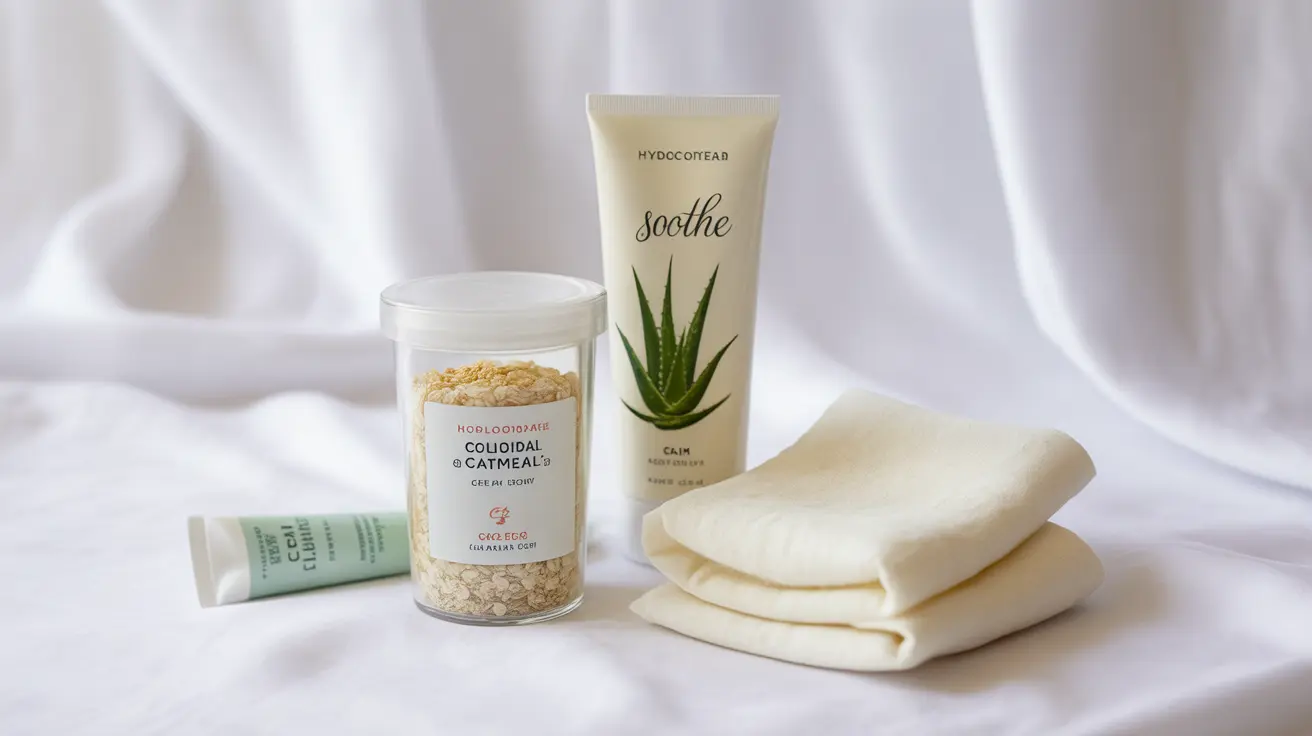Dealing with irritated skin can be uncomfortable and frustrating, but knowing what to put on irritated skin can make a significant difference in finding relief. Whether you're experiencing redness, itching, or inflammation, there are numerous effective solutions available, from natural remedies to over-the-counter treatments that can help soothe your skin and promote healing.
In this comprehensive guide, we'll explore various treatment options and preventive measures to help you manage skin irritation effectively and safely. Understanding when to use specific remedies and when to seek professional help is crucial for maintaining healthy skin.
Natural Remedies for Irritated Skin
Several natural ingredients can effectively calm irritated skin while promoting healing:
Colloidal Oatmeal
Colloidal oatmeal is renowned for its anti-inflammatory and soothing properties. To use it safely, add one cup of finely ground oatmeal to a lukewarm bath and soak for 15-20 minutes. You can also find commercial products containing colloidal oatmeal, such as lotions and creams.
Aloe Vera
Fresh aloe vera gel contains compounds that can reduce inflammation and promote skin healing. Apply pure aloe vera gel directly to the affected area up to three times daily. Choose products with minimal additional ingredients to avoid further irritation.
Cool Compresses
Applying a cool, damp compress to irritated skin can provide immediate relief from itching and inflammation. Use clean, soft cotton cloth soaked in cool water and apply for 10-15 minutes at a time.
Over-the-Counter Solutions
Hydrocortisone Cream
Over-the-counter 1% hydrocortisone cream can effectively reduce inflammation and itching. Apply a thin layer to affected areas up to twice daily for no more than seven consecutive days. Prolonged use can lead to skin thinning and other complications.
Gentle Moisturizers
Choose fragrance-free, hypoallergenic moisturizers designed for sensitive skin. Apply immediately after bathing to lock in moisture and create a protective barrier.
Prevention and Skin Care Habits
Preventing skin irritation is often easier than treating it. Consider these essential practices:
- Use gentle, fragrance-free cleansers
- Avoid hot water when washing
- Pat skin dry instead of rubbing
- Wear loose, breathable clothing
- Identify and avoid personal trigger substances
When to Seek Medical Help
While many cases of skin irritation can be managed at home, certain symptoms warrant professional attention:
- Severe pain or swelling
- Signs of infection (warmth, increasing redness, pus)
- Symptoms that persist beyond two weeks
- Large areas of affected skin
- Accompanying fever or systemic symptoms
Frequently Asked Questions
What are the best natural remedies to put on irritated skin to reduce itching and inflammation?
The most effective natural remedies include colloidal oatmeal baths, pure aloe vera gel, cool compresses, and chamomile tea compresses. These ingredients have anti-inflammatory properties and can provide immediate relief from itching and irritation.
How should I use baking soda or colloidal oatmeal to soothe irritated skin safely?
For colloidal oatmeal, add one cup to a lukewarm bath and soak for 15-20 minutes. For baking soda, mix 1-2 tablespoons in a bath or make a paste with a small amount of water. Always test on a small area first and avoid using on broken skin.
When should I use over-the-counter hydrocortisone cream for irritated skin, and are there any precautions?
Use 1% hydrocortisone cream for temporary relief of inflammation and itching. Apply no more than twice daily for up to seven days. Avoid using on face unless directed by a healthcare provider, and never use under occlusive dressings without medical supervision.
What skin-care habits help prevent further irritation or worsening of sensitive, inflamed skin?
Key habits include using gentle, fragrance-free products, moisturizing immediately after bathing, avoiding hot water, wearing loose-fitting clothes, and identifying potential triggers. Always patch test new products and maintain a consistent skincare routine.
How can I tell if my skin irritation requires a doctor's visit instead of home treatment?
Seek medical attention if you experience severe pain or swelling, signs of infection, symptoms lasting longer than two weeks, large affected areas, or if you develop fever or other systemic symptoms. Also consult a doctor if home treatments aren't providing relief after several days.




